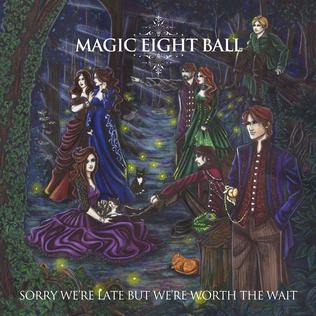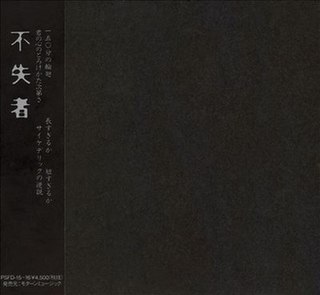
Keiji Haino is a Japanese musician and singer-songwriter whose work has included rock, free improvisation, noise music, percussion, psychedelic music, minimalism and drone music. He has been active since the 1970s and continues to record regularly and in new styles.

Oren Ambarchi is an Australian musician. He is a multi-instrumentalist who plays mainly electric guitar and percussion.
Fushitsusha (不失者) is a Japanese rock band specialising in experimental and psychedelic rock genres. The band consists of electric guitarist and singer Keiji Haino, and a shifting cast of complementary musicians. The group released the majority of its material in the 1990s.
Painkiller is an avant-garde jazz and grindcore band that formed in 1991. Later albums incorporated elements of ambient and dub.

Safe as Milk is the debut studio album by American music group Captain Beefheart and his Magic Band, released in June 1967 by Buddah Records. A heavily blues-influenced work, the album features a 20-year-old Ry Cooder, who played guitar and wrote some of the arrangements.

Boris is a Japanese band formed in 1992 in Tokyo and composed of drummer Atsuo, guitarist/bassist Takeshi, and guitarist/keyboardist Wata. All three members contribute vocals. Boris has released more than twenty studio albums on various labels around the world, as well as a wide variety of live albums, compilations, EPs, singles, and collaborative albums. They have collaborated with acts such as Sunn O))), Merzbow, Keiji Haino, and guitarist Michio Kurihara.

Tenshi No Gijinka is an album by Japanese musician Keiji Haino, released on John Zorn's Tzadik label in 1995. The album features nine untitled pieces, consisting of Haino's voice and percussion.

Why I Hate Women is the 13th studio album by Pere Ubu, released in 2006. Keith Moliné stepped in for departed longtime guitarist Tom Herman, making this the first Pere Ubu studio album not to feature any of the group's founders either as members or as guests. Explaining the title, Thomas claimed that Why I Hate Women is a tribute to an imaginary book that Jim Thompson could have written.
Table of the Elements is an American record label. It concentrates on re-released and specially recorded experimental music, including many avant-garde musicians of the 20th and 21st centuries: such as John Cale, Tony Conrad, La Monte Young, Loren Mazzacane Connors, Derek Bailey, Rhys Chatham, Fushitsusha/Keiji Haino, Jim O'Rourke, Angus MacLise, Mats Gustafsson and Thurston Moore.

This is a comprehensive discography of the Japanese noise musician Masami Akita, best known for his project Merzbow. Since 1980 he has released hundreds of recordings, collaborated with dozens of musicians, contributed over two hundred exclusive tracks to compilations, and made numerous guest appearances on recordings by other artists.
Yasushi Ozawa was a Japanese musician and sound engineer, best known as the bassist in Keiji Haino's rock group Fushitsusha. He was also a member of the free improvisation group Marginal Consort, and in the past he played with East Bionic Symphonia and Machine-Gun Tango.

Rituals: Live in Japan is a live CD by Painkiller, a band featuring John Zorn, Bill Laswell, and Mick Harris, performing live in Tokyo in 1991 with guest guitar and vocals from Haino Keiji. The album was released on the Japanese label Toy's Factory in 1993.
Avant Records was a record label in Japan that specialized in avant-garde jazz, avant rock, and experimental music. The label released more than 80 albums between 1992 and 2004.

Fushitsusha is the debut live album of the Japanese band Fushitsusha, released in 1989 through P.S.F. Records.

Sumac is an American/Canadian post-metal supergroup that formed in 2014. It features the Vancouver, British Columbia-based Nick Yacyshyn (Baptists), Seattle, Washington-based Brian Cook and Vashon, Washington-based Aaron Turner. Sumac released its debut album The Deal through Profound Lore Records in 2015.

Sorry We're Late But We're Worth The Wait is the debut studio album released by power pop band Magic Eight Ball. Music videos were made for the singles "Monkey Bars" and "Russian Ballet"

Fushitsusha is a live album by the band Fushitsusha. It was released in 1991 by P.S.F. Records.
Daniel Blumberg is an English artist, musician, songwriter and composer from London who works between drawing, improvisation, song form and film.

Love in Shadow is the third studio album by American post-metal band Sumac. It was released on September 21, 2018 through Thrill Jockey. Like the band's experimental collaboration with Keiji Haino earlier in 2018, much of the album was recorded improvisationally. Love in Shadow will be followed by a tour of the United States in early 2019.

American Dollar Bill – Keep Facing Sideways, You're Too Hideous to Look at Face On is a collaborative album between Japanese free improvisation/noise music artist Keiji Haino and American post-metal band Sumac. Serving as Haino's 86th and Sumac's third studio album, American Dollar Bill was released on February 23, 2018 through Thrill Jockey.














